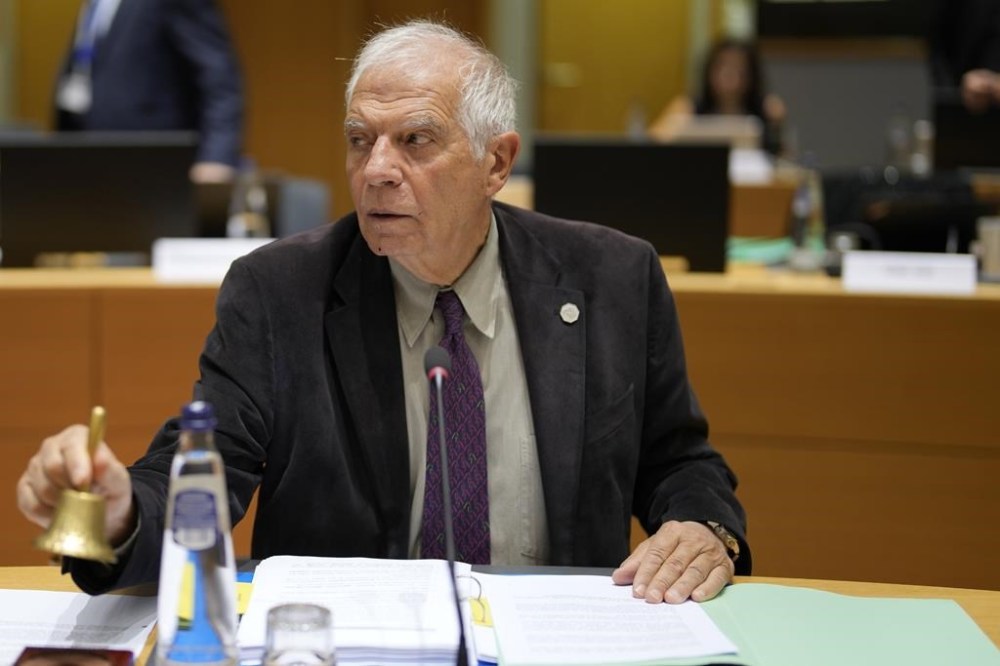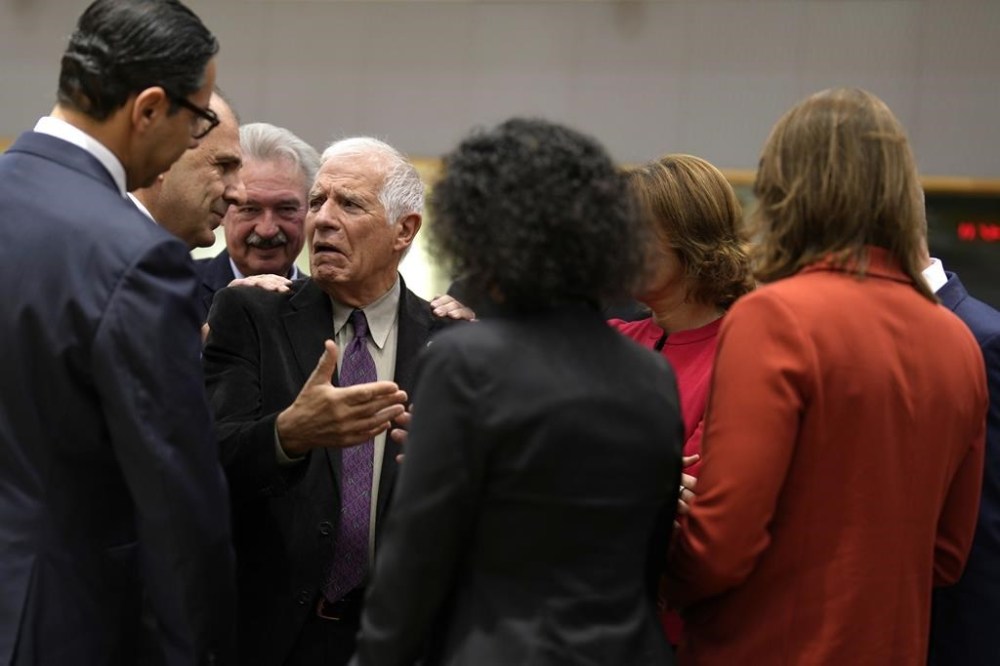EU nations condemn Hamas for what they describe as use of hospitals, civilians as ‘human shields’
Advertisement
Read this article for free:
or
Already have an account? Log in here »
To continue reading, please subscribe:
Monthly Digital Subscription
$0 for the first 4 weeks*
- Enjoy unlimited reading on winnipegfreepress.com
- Read the E-Edition, our digital replica newspaper
- Access News Break, our award-winning app
- Play interactive puzzles
*No charge for 4 weeks then price increases to the regular rate of $19.00 plus GST every four weeks. Offer available to new and qualified returning subscribers only. Cancel any time.
Monthly Digital Subscription
$4.75/week*
- Enjoy unlimited reading on winnipegfreepress.com
- Read the E-Edition, our digital replica newspaper
- Access News Break, our award-winning app
- Play interactive puzzles
*Billed as $19 plus GST every four weeks. Cancel any time.
To continue reading, please subscribe:
Add Free Press access to your Brandon Sun subscription for only an additional
$1 for the first 4 weeks*
*Your next subscription payment will increase by $1.00 and you will be charged $16.99 plus GST for four weeks. After four weeks, your payment will increase to $23.99 plus GST every four weeks.
Read unlimited articles for free today:
or
Already have an account? Log in here »
Hey there, time traveller!
This article was published 13/11/2023 (749 days ago), so information in it may no longer be current.
BRUSSELS (AP) — The 27 European Union nations have jointly condemned Hamas for what they described as the use of hospitals and civilians as “human shields” in the war against Israel.
EU foreign affairs chief Josep Borrell said Monday that at the same time the bloc asked Israel “for maximum restraint in targeting in order to avoid human casualties.”
At a meeting of the bloc’s foreign affairs ministers, Borrell brandished a statement he issued on behalf of the 27 nations as a show of unity following weeks of often contrasting statements on how the group should address the Israel-Hamas war.

“You know how difficult it has been the last times, after the vote in the United Nations, where countries were voted in different ways, to present a completely united approach,” Borrell said. Only hours after EU leaders professed unity over the Israel-Hamas war on Oct. 28, the member states were totally split in a vote on a General Assembly resolution calling for humanitarian truces in Gaza leading to a cessation of hostilities between Israel and Hamas.
Now, though, the EU nations said in a statement they join “calls for immediate pauses in hostilities and the establishment of humanitarian corridors, including through increased capacity at border crossings and through a dedicated maritime route, so that humanitarian aid can safely reach the population of Gaza.”
And they reiterated their “call on Hamas for the immediate and unconditional release of all hostages. It is crucial that the International Committee of the Red Cross is granted access to the hostages.”
And as a key tenet, it said that “the EU condemns the use of hospitals and civilians as human shields by Hamas.”
Latvian Foreign Minister Krisjanis Karins said that “Hamas is unfortunately using civilian infrastructure and civilians as shields against the Israel Defense Forces. So the situation (is) absolutely not black and white.”
Israel says Hamas shields itself among civilians in hospitals, and that Gaza City’s largest Shifa Hospital is a prime example of that. Israel claims the militants have a command center in and beneath the medical compound. It has not provided photos or videos to back up its claims though it has shared footage of militants operating in residential neighborhoods and positioning rockets and weapons near schools and mosques.
Hamas, which is considered a terrorist organization by the EU, accused Borrell of distorting facts. It described his comments as a “cover-up” for Israel to “to commit more crimes against children and defenseless civilians.” Hamas called on Borrell to reverse his “outrageous and inhuman comments.”

The EU nations stopped short of calling for a cease-fire.
German Foreign Minister Annalena Baerbock said she understood “the impetus for a cease-fire.” But she said those who seek one must answer questions “for example, how can the demand for a cease-fire, acutely, and now in this terrible situation guarantee that Israel’s security is assured? What happens with the 200 hostages, and who negotiates it in a situation where negotiations barely seem possible?”
__
Associated Press writer Geir Moulson in Berlin and Samy Magdy in Cairo contributed to this report.


